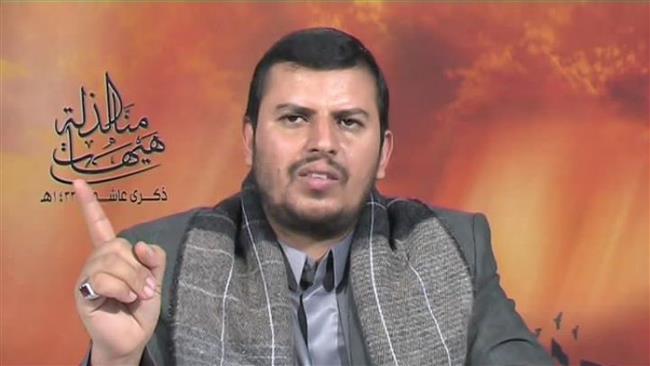
RNA - In a televised address on Tuesday, Abdul-Malik al-Houthi said the administration of President Abd Rabbuh Mansur Hadi should be held accountable for the escalation of violence in the Arab country.
"The president and several Yemeni forces are protecting corruption in the country instead of fighting it," Houthi added.
The Ansarullah leader called on Hadi to “speed up” the implementation of the peace agreement or face the dire consequences of his decisions, warning that “all options are open” and the rising tension will have “no ceiling."
Houthi added that the United Nations Security Council’s threats to slap sanctions against Ansarullah revolutionaries will by no means deter the Yemeni people from pursuing their legitimate demands.
"I advise the UN Security Council... (that) you will not benefit from any measures you wish to take,” he said, adding, "We are ready to face the consequences, regardless of what they are."
According to Press TV, the Security Council imposed sanctions against two of the Ansarullah commanders back in November, but not on Houthi himself.
Yemen has been the scene of tensions after the Shia fighters arrested Ahmed Awad bin Mubarak, Hadi's chief of staff, at a checkpoint in the country’s western district of Hada on Saturday.
The impoverished Arab country is currently grappling with a severe political crisis between the central government and Ansarullah revolutionaries.
In September 2014, Ansarullah revolutionary fighters gained control of Sana’a following a four-day battle with army forces loyal to General Ali Mohsen al-Ahmar, the half-brother of the country’s former dictator, Ali Abdullah Saleh.
In the same month, Ansarullah fighters and President Hadi’s government inked the UN-backed ceasefire deal that called for the withdrawal of the revolutionaries from the capital once a neutral prime minister was picked. The deal has failed to deliver any practical results so far.
R111/108/C/